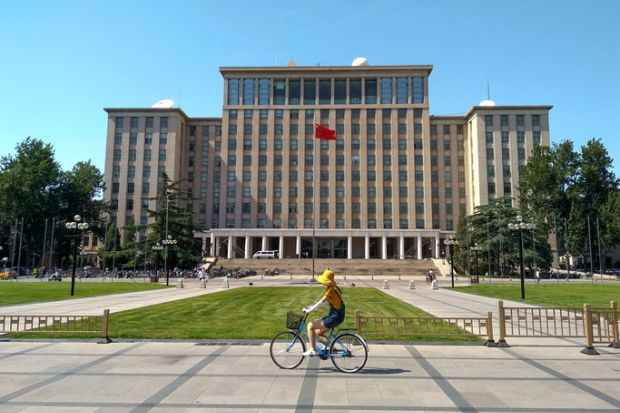点击阅读英文原文
一个致力于学术评价的新研究中心被视为中国改革高校、学者和研究评价方式的最新举措,尽管未来的评价标准如何发展仍存在不确定性。
中国人民大学近日成立的评价研究中心在该领域属首开先河,旨在探索能“真实反映”中国高等学校(尤其是以人文社科见长高校)办学水平和综合实力的评价指标体系。
据悉,该研究中心计划首先建立一个全校统一的数据库,系统收集大学各方面数据,然后在明年拓展至其它高校,以期发起成立中国大学数据交换联盟。
“长久以来,中国高等教育始终被缺乏合理、准确的评价标准系统所困扰。”中国人民大学的教育学教授、该研究中心的执行主任周光礼告诉泰晤士高等教育:“另一方面,国际上则有一种重理工学科轻人文社的倾向,这可能会削弱大学的道德领导能力和立德树人能力。”
因此,周教授表示,中国人民大学将确立符合“中国标准”、适合人文社会学科的评价体系作为自身的使命。
此前有研究表明,对科睿唯安旗下“社会科学引文索引”(Social Science Citation Index)的追求使得一些学科领域未获足够重视,并导致中国研究人员竞相追逐西方期刊编辑感兴趣的“热门话题”。
“我们的教育评价体系面临的问题是相互纠缠的,既有评价理念的问题,也有评价方法的问题。”清华大学教育学教授、教育研究院执行院长石中英表示:“但最主要的问题是着眼于教育活动的外部特征,而对它们反应教育活动的根本特性、目的和价值的考量不足。”
周教授说:“我们希望放弃只关心数字的思维,但客观的标准在中国有存在的必要。”他举例说,在西方行之有效的“同行评议”在中国的人情社会中常常被扭曲。 “目前最大的挑战是如何建立一种新的为人们所认同的评价体系。”
石教授指出了一系列理想评价体系的方向。它应当引导教育事业健康发展,遵循由专业人员制定的综合方案,接受各方质疑,并且以“面对面”的方式进行,而非“背对背”的方式。
他建议未来在评价学者与研究资金决定时,应当公开所有指标、数据来源、分析模型和评价结果。他说:“要谨防年轻学者们担心的‘行政主导’问题,评价流程必须透明,不能弄成一个黑箱。而且学术评价的主导权应放在相关教育或学术共同体手上,而不是任何有影响力的个人手上。”







